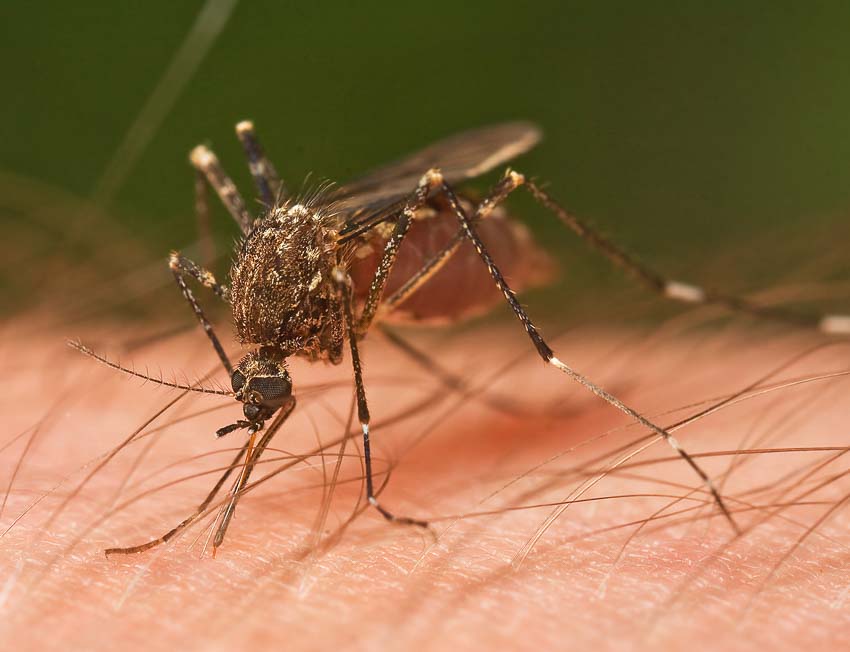Mosquitoes are annoying pests, but even worse, they carry deadly diseases , killing more humans yearly than any other organism. Learn how to get rid of mosquitoes and discover which repellents provide relief from these annoying insects.
How to Get Rid of Mosquitoes Indoors
Knowing how to get rid of mosquitoes indoors starts with keeping them from getting into your home. Once they get in, they can even start breeding in your home’s dark, damp corners.
Discover the best ways to eliminate mosquito breeding sites indoors, and use traps and repellents to keep them from eating you alive while you’re sleeping and relaxing.
How to Eliminate Mosquito Breeding Sites Indoors
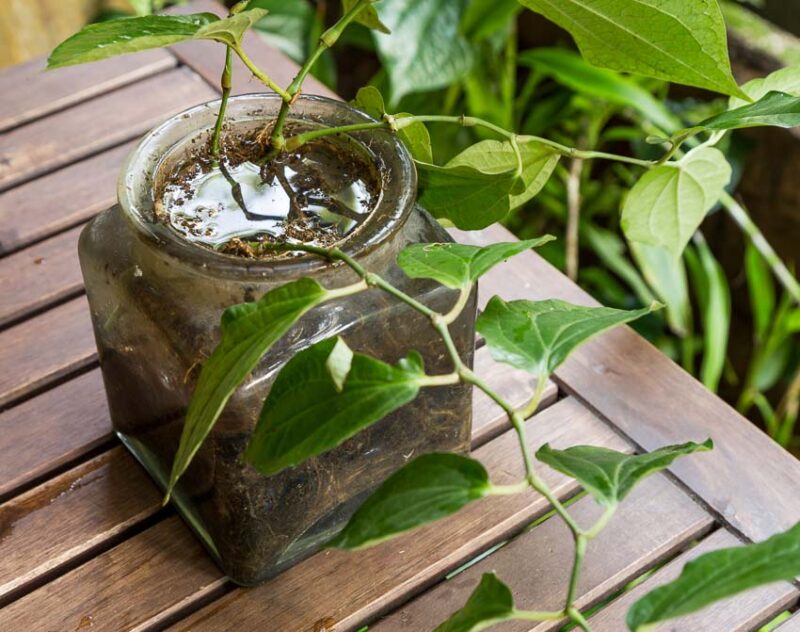
Can mosquitoes breed inside your home? Absolutely.
Female mosquitoes, which are the ones that bite mammals, can live about 40 to 50 days on average.
They will more likely be a problem in your yard, however, they can make life miserable once they enter your home. So it’s important to ensure they aren’t breeding.
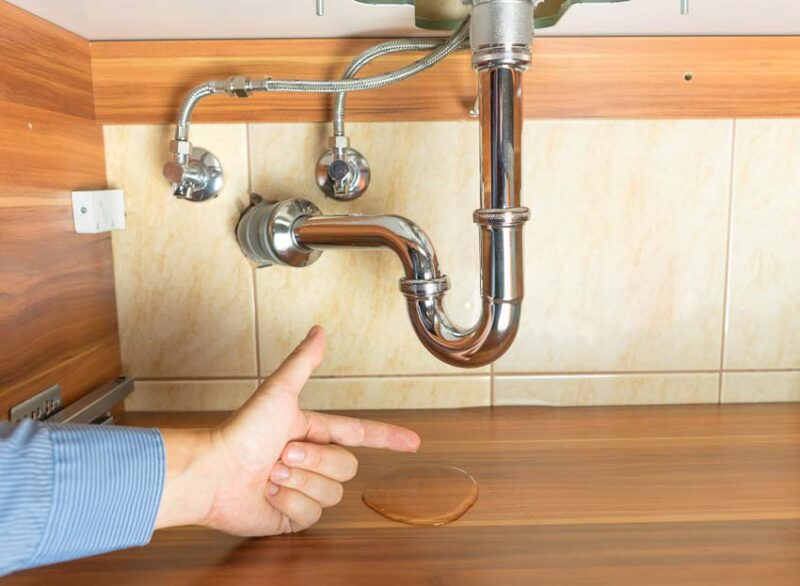
Take the following actions to eliminate their breeding sites:
- Every week, throw out or clean and dry any container in your home that holds water, including vases and houseplant saucers.
- Flush out P traps, especially in sinks that aren’t used frequently, by pouring a bucket of water down the drain.
- Indoor water features are a common breeding site for mosquitoes. If necessary, turn off the water feature until your mosquito problem is under control.
- Check the water tray on your evaporative cooler.
- Check your plumbing for leaks, especially under sinks.
You can also make mosquitoes less comfortable in your home using oscillating fans and air conditioners to blow air around. Mosquitoes can’t fly in strong winds, and they’ll be more likely to hide in the corners.
How to Get Rid of Mosquitoes with Indoor Repellents and Traps
You can use several methods to trap or repel the mosquitoes that have made their way into your home. Try the following methods and see which one works best for you.
Bug Zappers
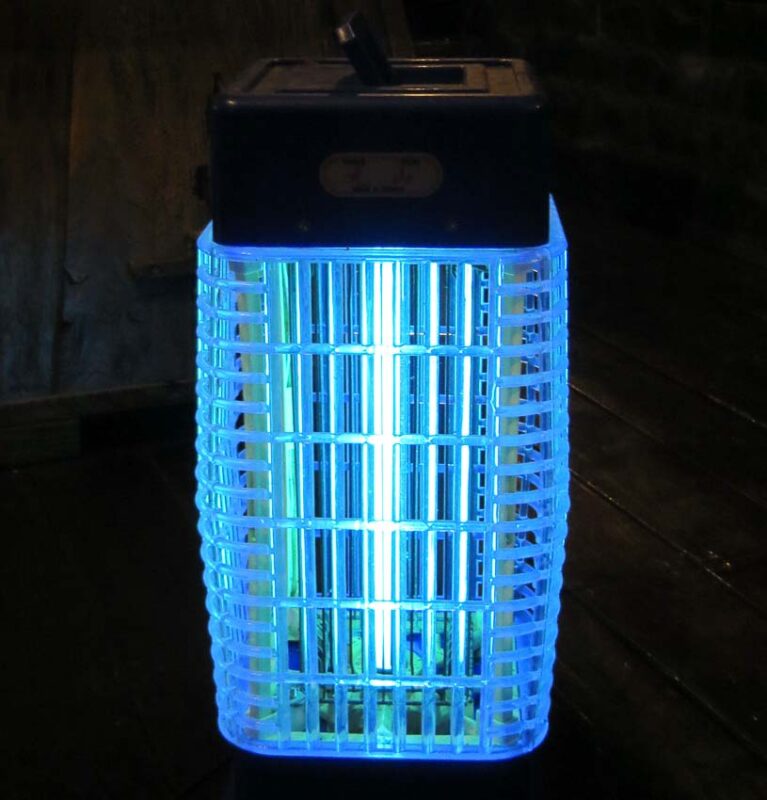
While they aren’t the best for outdoor use because they kill insects indiscriminately, bug zappers work great indoors.
Electric Fly Swatters
A handheld electric fly swatter makes it easier to kill mosquitoes and other insects on contact. They are completely safe to use, as they are only powered with two or three AA batteries.
Lavender
Use lavender any way you can to repel mosquitoes. Candles, essential oil spray, and incense all work to repel mosquitoes and make your home smell better at the same time.
Mosquito Traps
There are several different kinds of mosquito traps. You can purchase them ready-to-use or make your own with a 2-liter bottle, a cup of warm water, some bread yeast, and a few tablespoons of sugar.
Preventive Measures
While you’re working on how to get rid of mosquitoes inside your home, seal up all possible entry points. Mosquitoes still manage to find their way inside when doors are opened, but you should try to eliminate all points of entry that you can.
If you need to keep your door open in the morning to cool off your house but don’t have a screen door, get an inexpensive magnetic screen door as a temporary fix.
Preventing Mosquito Infestations Outdoors
Mastering how to get rid of mosquitoes outside may seem like an impossible task, but if you have a serious infestation that’s making your backyard unusable, it’s time to take action. You’ll be surprised at how effective these measures are once you start tackling your mosquito problem.
Removing Mosquito Breeding Areas Outdoors
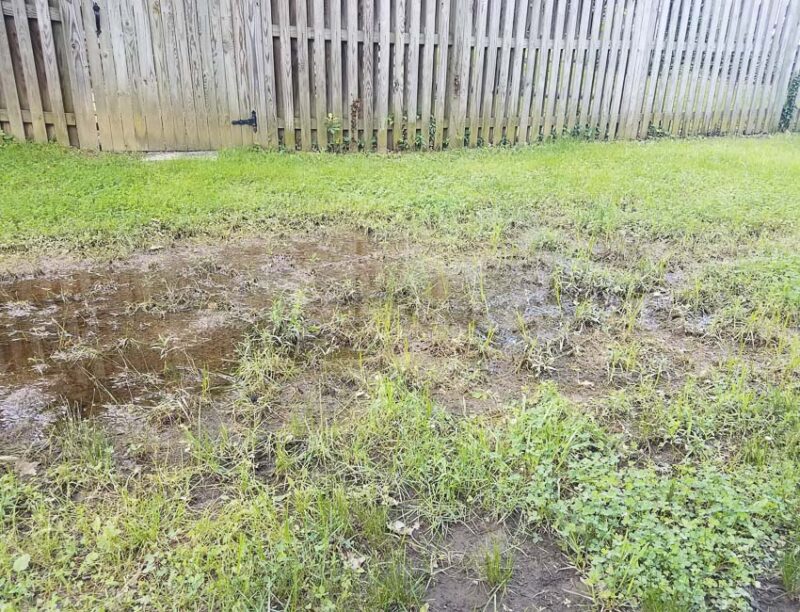
Controlling mosquitoes outside your home is considerably more difficult than eliminating them inside your home. It’s surprising how little water it takes for mosquitoes to breed.
Even containers that previously held water, once dried out, contain mosquito eggs that can hatch once they fill back up with water.
You can make a big difference in the mosquito population by addressing the following areas in your yard:
- Every week, remove or empty and scrub any item in your yard that holds water, including buckets, planters, toys, old tires, bird baths, and trash containers.
- Cover open rain barrels and water cisterns with a screen too small for adult mosquitoes to pass through.
- Drain pools that aren’t being used.
- Clean your gutters at least twice a year.
- Mow your lawn regularly and allow it to dry out between waterings.
- Prune trees and shrubs to minimize the amount of shady areas in your yard.
Use larvicide in water sources that can’t be drained, like ponds and rain barrels. Mosquito dunk tablets that contain Bacillus thuringiensis israelensis , a bacterium that only harms mosquitoes, are safe and effective. They aren’t toxic to plants, wildlife, pets, or children.
Outdoor Mosquito Repellents and Control Methods
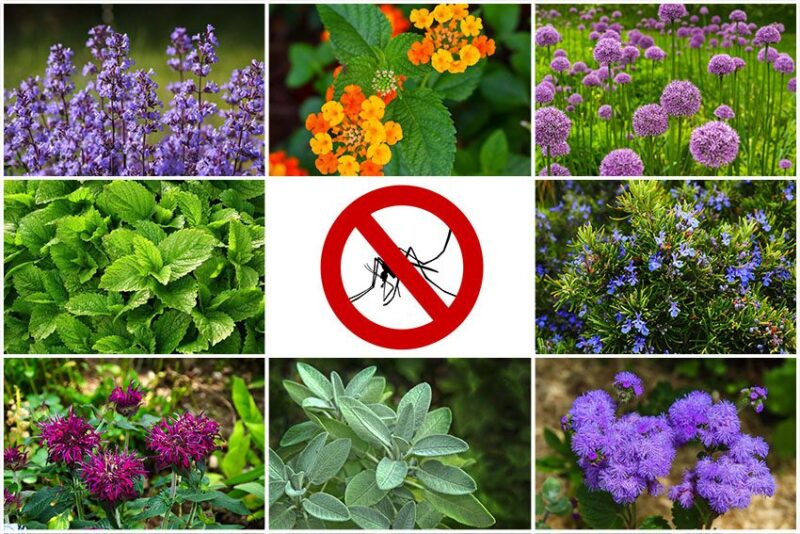
Even though you have a lot more area to cover outdoors than you do inside your home, you also have a range of effective methods to control mosquitoes.
Mosquito Sprays for Your Yard
Mosquito sprays are the best way on how to get rid of mosquitoes in your backyard. You can use natural or chemical mosquito sprays for your yard. Some are designed to kill mosquitoes, while others work by repelling them.
Traps
You can use the same type of mosquito traps that you use inside your home to control mosquitoes outdoors. Place them around the edges of your property to lure mosquitoes in and trap them.
Natural Plants
In the parts of your backyard where you like to relax or play, incorporate the following mosquito repellent plants in your landscaping. They will keep mosquitoes and other pests away.
- Citronella
- Lavender
- Marigold
- Catnip
- Peppermint
- Pennyroyal
- Geranium
- Basil
- Rosemary
- Lemon Balm
- Garlic
Cedar Mulch
Cedar oil is a natural mosquito repellent, and one of the easiest ways to take advantage of its natural ability to repel mosquitoes is by using cedar mulch. The wood mulch also works by absorbing moisture. Place it around your lawn furniture and children’s backyard play areas.
How to Get Rid of Mosquitoes Using Natural Predators
Encourage the natural predators of mosquitoes to reduce their population, including bats, frogs, and birds.
- Bats eat approximately 6,000 to 8,000 mosquitoes each night, and it’s easy to set up bat houses on your property to encourage them to live in your yard.
- If you have a pond, make it frog-friendly by creating a natural habitat for them. Frogs like quiet, still water, so avoid using aeration and filtration systems.
- By setting up feeders, houses, and bird baths, you can attract birds that eat mosquitoes, like purple martins, bluebirds, and hummingbirds.
Citronella Candles
Citronella candles aren’t recommended indoors, but they work great to repel mosquitoes outdoors. Place a few candles around your backyard patio or firepit, and being outdoors will be more bearable.
Homemade Mosquito Repellent vs. Store-Bought
Finding the best mosquito repellent can be challenging, but mosquito repellents can make being outdoors bearable during the worst times of the year. Use them on your clothing and body, or try the type you spray around your yard.
How to Get Rid of Mosquitoes: Homemade Recipes and Tips

If you’re not keen on using harsh chemicals on your skin, homemade mosquito repellents are the best option. They are made by mixing essential oils with a carrier so that you can spray the mixture on your skin.
The best carriers for mosquito repellents are apple cider vinegar, white vinegar, witch hazel, coconut oil, olive oil, jojoba oil, and lemon juice. You can also use isopropyl alcohol diluted with equal amounts of water.
Use combinations of essential oils, and mix about 40 drops to a cup of carrier. Use the following essential oils, experimenting with different combinations to find the one that you like best:
- Tea tree
- Eucalyptus
- Lemongrass
- Lavender
- Peppermint
- Basil
- Geranium
- Cinnamon
You can use the same basic recipe when making homemade mosquito repellent for your yard. In terms of effectiveness and being nontoxic, homemade formulas are the best mosquito repellent for your yard, but they aren’t long-lasting.
Store-Bought Mosquito Repellents: Choosing the Right Option
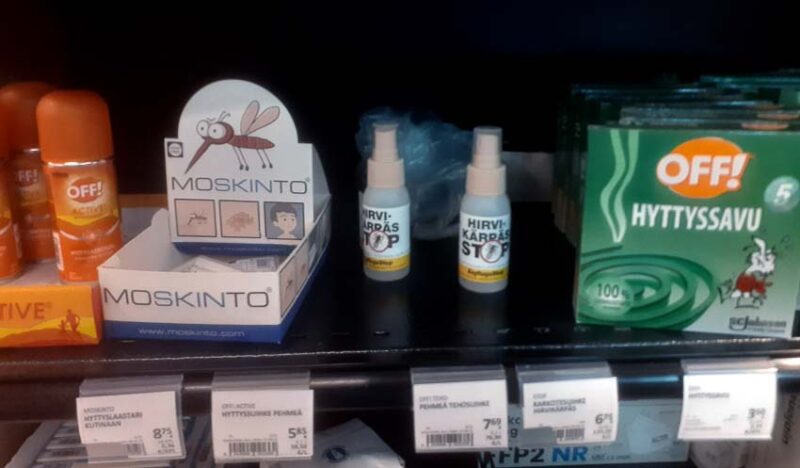
When you need something a little stronger than an organic mosquito repellent, use a synthetic one containing DEET, Picaridin, or Permethrin. While they aren’t as eco-friendly as natural mosquito repellents, they are effective.
Store-bought topical repellents work by confusing mosquitoes homing systems so they can’t detect human breath, body odor, and lactic acid. They are effective for about six to twelve hours, and they can be applied as sprays, lotions, gels, or roll-ons.
There are also store-bought mosquito repellents designed for use in your yard. Wondercide EcoTreat Ready-to-Use Outdoor Pest Control Spray with Natural Essential Oils is a natural spray that remains effective for several days and is also effective against ticks and other insects.
Best Practices for Effective Mosquito Control
Learn more about the best practices for effective mosquito control, including eliminating extra moisture in your yard through proper drainage and landscaping techniques.
Maintaining Proper Drainage to Prevent Mosquito Breeding
When it rains, the amount of water that comes off your roof can be a significant source of excess water on your property. Stormwater control measures are necessary to help control erosion and eliminate problems with standing water that mosquitoes can breed in.
You can install an active rainwater collection system using rain barrels, a passive one using dry creek beds and swales, or a combination of the two. If you choose a rainwater collection system, be sure to use screens to keep mosquitoes out of standing water.
You can also use larvacides in any open water sources.
How to Get Rid of Mosquitoes with Landscaping
Understanding how to successfully get rid of mosquitoes on your property means making your yard less attractive to them. Here are some landscaping tips to use to minimize mosquito infestations:
- Mosquitoes are weak fliers, so taking out windscreens and pruning back trees and shrubs will make it harder for them to fly around in your yard.
- Drill drain holes in containers that need to stay in your yard, like trash cans.
- Trim back hedges, shrubs, and trees, and keep your lawn trimmed neatly to reduce the amount of greenery and shady areas where mosquitoes like to hide.
Rearrange the plantings in your yard, putting fragrant plants in the areas most frequently used, with large shrubs and hedges farther away. Many fragrant plants for your garden are mosquito repellents, and they offer additional benefits to humans, including culinary uses and beautiful flowers.
FAQ: Addressing Common Questions about How to Get Rid of Mosquitoes
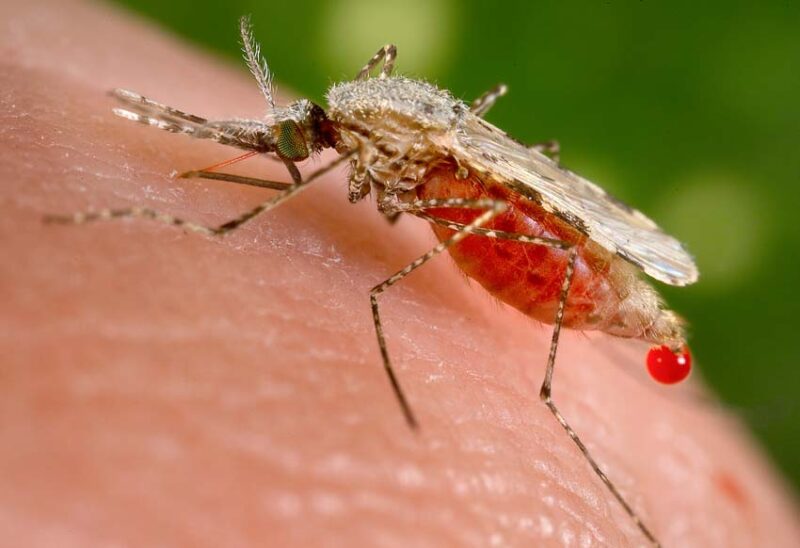
Q1: What are the Best Natural Mosquito Repellents?
Essential oils make excellent natural mosquito repellents. Finding the one that works best for you might take some experimentation. Try different combinations of essential oils, such as tea tree oil and eucalyptus or lemongrass and lavender.
Q2: Do Mosquito Traps Really Work?
Mosquito traps are effective at luring mosquitoes and killing them, but they aren’t 100% effective at keeping mosquitoes out of your yard. The outdoors is a big place, and mosquitoes will keep coming.
The most effective approach is to place traps at the edge of your property and use repellents as a barrier to keep them from coming into your yard.
Q3: How Long do Repellents Help Get Rid of Mosquitoes?
Different types of mosquito repellents are effective for various amounts of time. Chemical mosquito treatments in your yard can last one to two months, but the type of mosquito repellent you use on your clothes and body only lasts about six hours.
Q4: Can Mosquitoes Breed in Small Amounts of Water?
Mosquitoes lay hundreds of eggs at a time, and they only require a small amount of water. Some types of mosquitoes can lay their eggs in less than ¼” of water, which would fit in a bottle cap. While the eggs can survive being dried out, the larvae cannot.
Q5: What Attracts Mosquitoes to Humans?
Mosquitoes are attracted to various scents and temperatures, but primarily, they are attracted to the carbon dioxide that people and animals exhale. Researchers have also discovered that mosquitoes are attracted to dark clothing.
Even though female mosquitoes draw blood, both males and females are attracted to people.
Got other pests? OPEreviews.com has solutions! Check out our guides to getting rid of deer, mice and rats, raccoons, groundhogs, rabbits, moles and voles, cats, ants, grubs, fleas, termites, slugs, aphids, and carpenter bees!

